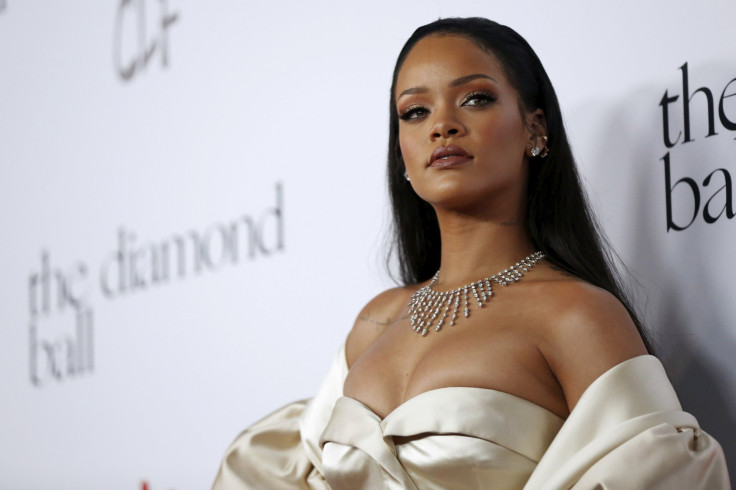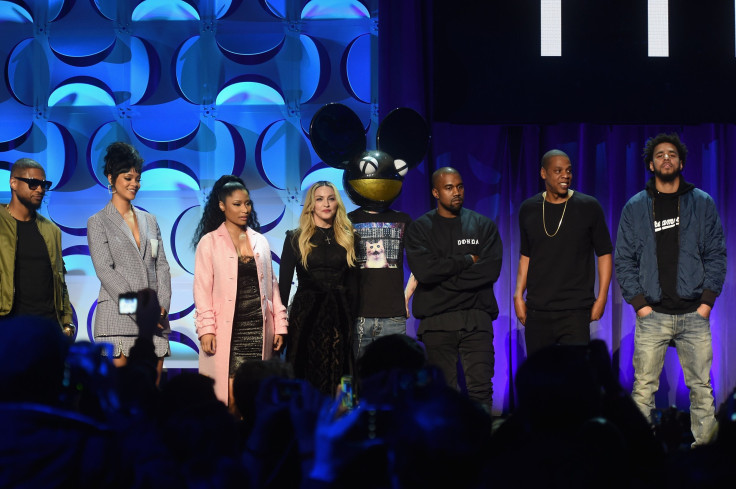Why Rihanna Made ‘ANTI’ Available For Free On Tidal

If you’ve ever wondered how Rihanna would have done on the marshmallow test, the rollout of her new album suggests that she would have totally nailed it. The pop megastar’s surprise decision to give "ANTI" away for free, via Tidal, is Rihanna sacrificing the certainty of near-term chart success for the possibility of a major long-term financial payoff, one that lifts not just her but the rest of Tidal's stakeholders.
By any measure, Rihanna is one of the most successful recording artists of all time. She has sold more than 54 million albums worldwide and the 210 million digital tracks she’s moved makes her the highest-selling digital artist in history. The 7 billion streams of her music videos also make her the most popular music video artist in history and she has become popular with fans all over the world.
But despite (or maybe because of) that success, she’s also an artist who has found ample opportunities to earn money in other ways. Whether it’s through partnerships with major brands like Puma, or through huge tours — the last time she hit the road, she grossed nearly $138 million — Rihanna has become someone who understands that the most lucrative parts of music stardom today have little to do with selling albums.
Enter Samsung. The device manufacturer, which also happens to be one of the biggest advertisers in the world, has partnered with Rihanna in a way that will help her earn major money doing everything except selling records. Heading into this week, it had become clear that Samsung was helping her with a splashy TV and digital ad campaign and with support for a tour that’s launching next month. But on Wednesday night, we learned the biggest part of it: free downloads of “ANTI” and the opportunity to try Tidal for free for 60 days.
Tidal declined to comment on how many free downloads and trial memberships it was giving away and the downloads may not help Rihanna in the traditional sense. They might not be factored into Billboard’s chart rankings because, according to one report, the download cannot be used on any recording that isn’t “ANTI.” But they give Tidal the potential opportunity to entice thousands, maybe even millions of people, into trying out a service with no strings attached: Users are not required to enter their credit card information to begin streaming.
This helps Rihanna because it helps Tidal — and it helps Tidal because after royalties, customer acquisition is by far the biggest expense most streaming music companies have. When Deezer, a Tidal competitor from France, announced it had raised $110 million in funding last week, it cited customer acquisitions as one of the main things it would pour its cash into.
Rihanna became the first artist to show that it’s possible to transfer those costs to a deep-pocketed advertiser. While a number of Tidal's high-end speaker partners have bundled 30-day free trials into products it sells, this is the first time a sponsor has paid for a 60-day free trial in addition to a free album. And while the number of artists capable of commanding the attention of a Samsung-caliber brand is small, an awfully large number of them happen to be invested in Tidal's success.

If Tidal starts showing that it’s capable of selling sponsors rather than investors to fund its expansion, it could vault the company right back into the race between Apple Music, Spotify, YouTube and others to acquire subscribers.
It’s not every day that a global star will do something that will guarantee them a lack of short-term chart success. But Rihanna’s decision to do just that may go down as one of the smartest business decisions she’s ever made.
© Copyright IBTimes 2024. All rights reserved.





















